Robin Hardy, director
I was making commercials in the US and doing very well. Then a film company sent the writer Anthony Shaffer out to lure me back to the UK. When I opened my door in Manhattan, he said: “I am with the FBI and we are investigating you to see if you have communist sympathies.” It was the first of many jokes.
We spent a weekend devising the plot, about a policeman called Howie who is lured to a Scottish island to investigate a missing girl; he is ultimately sacrificed by the pagan locals to save their apple crop. Paganism gave us lots of ideas, like the little girl being given a frog to put in her throat to stop it hurting. Essentially, one must think of The Wicker Man, as a game, with clues gradually suggesting Summerisle is not run in accordance with Christian values of Howie. Setting it in Scotland was crucial: in the early 1970s, Christanity was still widely practised, and it had a very puritan aspect. It might not have been as believable set in Woolwich.
Christopher Lee was the obvious choice for Lord Summerisle. He had a patrician air, and this wonderful voice for incantations to the gods. Casting Howie was much harder. Michael York turned it down, David Hemmings had other fish to fry. Edward Woodward had always played counter-establishment parts on TV, but actors are always pleased to be cast against their image. He understood the script perfectly and grew into the uptightness of the role beautifully – the consummate actor.
Britt Ekland had made it as a model not an actor, but I was very satisfied with her performance [as landlord’s daughter Willow]. The dance scenes required her to bare her behind. “But I’ve got an arse like a ski slope,” she said. I couldn’t see that was the case, but we had to do something. So we provided her with a bottom double.
Making the film was great fun. It was shot in 25 different locations and, since it was set in spring, and we were shooting in November, we had to glue leaves and blossom on to the trees wherever we were. The opening sequence, with aerial shots from the plane arriving, was actually filmed in South Africa, because we didn’t have the budget to glue blossom to that many trees.
The final scene, the sacrifice, took place in Dumfriesshire. The wicker man was enormous. The stunned look on Howie’s face when he first sees it wasn’t acting – up until then, Edward had only seen drawings. He clambered in and we set it on fire, filming from the inside. There was a goat inside there, above us. Understandably concerned about the fire, it pissed on us.
Although the fire brigade put the blaze out several times, we were always in control. We faced demands to change the ending, to save Howie from the fire – someone at the studio even suggested torrential rain – but it wasn’t going to happen. There was a power struggle going on at British Lion, the film company. Some executives were trying to destabilise Peter Snell, the managing director and producer of The Wicker Man. They said the film was rubbish and undistributable, eventually sending it out as a supporting feature to Don’t Look Now. Christopher was furious and told them: “This is the best film I’ve ever done.” He took it to Paris where it won the Grand Prix du Film Fantastique and then got great reviews in America. It had become a very good story for journalists – a studio rubbishing its own acclaimed film. So British Lion had to start promoting it properly.
Gary Carpenter, musical director

British Lion wanted the film to be made quickly and cheaply, with students playing the music to save money. But the Royal College of Music blocked this, saying it would be too disruptive and time-consuming for its students. So they looked at recent graduates instead – and that was me. I was invited to meet Paul Giovanni, who wrote the songs. I was involved in a band called Hocket – a Fairport Convention knock-off really – but I told him I could get people who knew about folk music and were cheaper than his first choice, Pentangle.
We called ourselves Magnet and got into Paul’s soundworld very quickly. We were interested in this semi-mystical occult shit and played music that touched on real traditions – Celtic music, Irish folk. On one occasion, Paul suggested we all smoke dope. I’d never tried it; we spent so much time on the floor laughing that nobody could play their instruments. Although we recorded the music before the film was made, it totally captures the mood.
We were flown up for the entire shoot. I had to bang a drum to keep Britt Ekland in time, so her topless mime stayed in sync with Willow’s Song. The whole thing took 13 hours to shoot, so between takes she was covered in a towel. I had to remove it every time they filmed. It’s the weirdest job I’ve ever had – but certainly not the most unpleasant.
I’m in the film several times: in the pub playing along as Paul Giovanni sings Gently Johnny; though my big moment comes at the end when Howie is being stripped and I’m playing the lyre above his head.
We’d no idea the music would become so influential. When I worked with Damon Albarn on the soundtrack to the [1999 horror film] Ravenous, he said he wanted it to sound like The Wicker Man. I said: “You know I did The Wicker Man?” He went: “I had no idea. Nobody tells me sod all.”
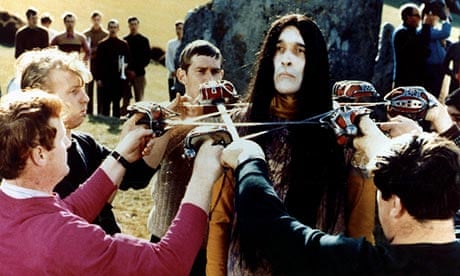
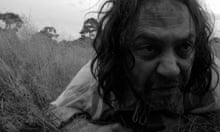
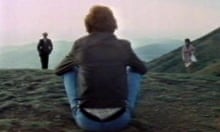
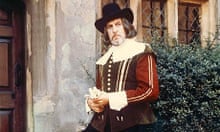
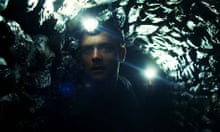
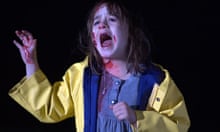
Comments (…)
Sign in or create your Guardian account to join the discussion